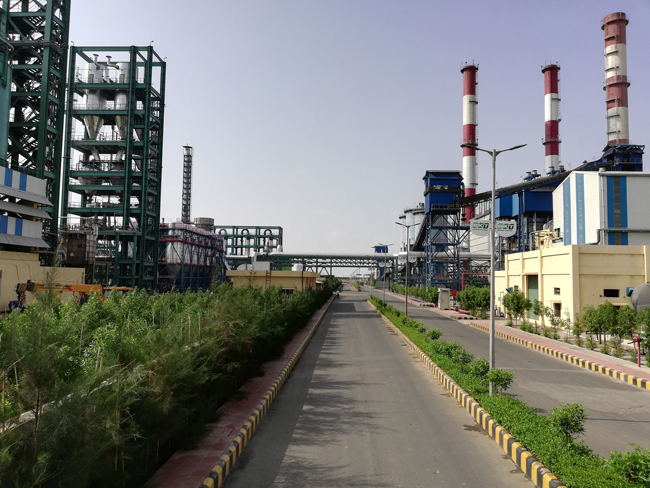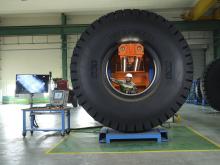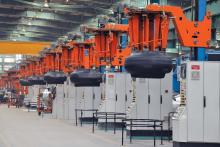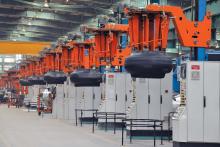
Indian off-highway machine tyre giant
At the end of the first quarter of financial year 2019 (1 March - 31 May), the plant had a carbon black production output of 60,000 tonnes. This was due to increase to 80,000 tonnes in the second quarter, and will reach its full production capacity of 130,000 tonnes by 2021.
Around 50% of the carbon black produced at the new plant is being used in BKT’s tyre manufacturing process, while the other remaining 50% is sold on the market. Besides, 80,000 tonnes of the present production are in hard grade, whereas further capacity for 50,000 tonnes in soft grade is under commissioning.
BKT is the only company in the Indian tyre industry having its own carbon black production plant.
“This plant makes the difference and is definitely going to reward us. This significant US$75- million-dollar investment (initially $23 million) provides vital raw material within the tyre manufacturing supply chain,” Rajiv Poddar, joint managing director of BKT, explains. “The decision to produce this component in-house is part of our strategy. Not only does the new plant provide us with manufacturing independence, but it also ensures a better quality of our raw materials, since we have now precise upstream control over the entire process."
The vertical integration of carbon black in the tire production process is hence another step forward in the development of the Bhuj production site, which was inaugurated back in 2015, and has been planned for enduring expansion in order to respond to the ever-growing demand for tires.
With its state-of-the-art machinery, an enlarged expanse of over 160 hectares of land, and its proximity to the vital logistics hub of the Mundra commercial port, the Bhuj production site has proven to be a great strategic advantage for BKT. Core of the Bhuj site is its cutting-edge Research & Development Centre, where solutions for the ‘tyre of the future’ are being designed and developed.
BKT has announced the intention to increase its global market share in the off-highway machine tyre segment by raising its current figure of 6% to 10% by 2025.








